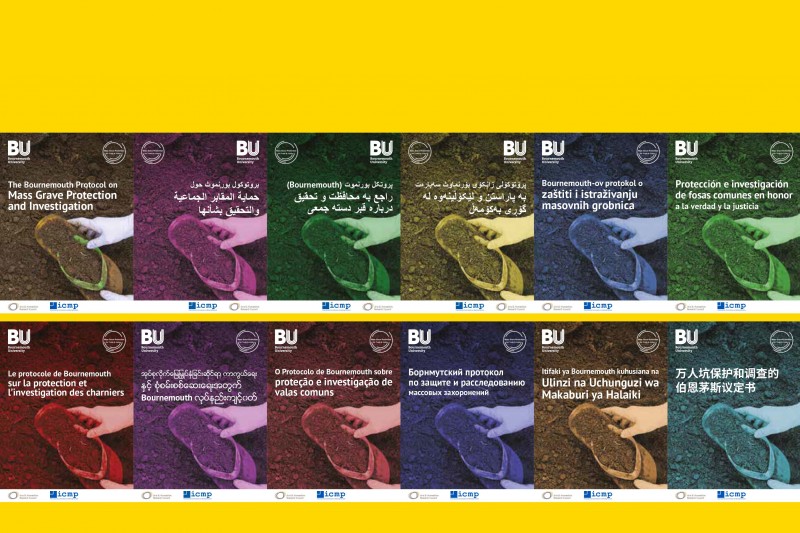Mass grave sites across the world are a stark reminder of conflict and cruelty, of persecuted populations, and of terrible tragedy.
Yet each mass grave has an important story to tell. As well as a crucial source of evidence to help bring those responsible to justice, the investigation of mass graves can also help loved ones find the answers they so desperately need and deserve.
Dr Melanie Klinkner, Professor in International Law at BU, has dedicated much of her career to exploring the legal aspects of mass grave protection and investigation.
“The work is important to honour the dead, but also to serve the living by giving them some understanding of what happened,” Professor Klinkner said.
“For the relatives of the people who go missing, or those who perished in mass graves, without knowing what happened it’s an incomplete process and they can neither mourn nor grieve; and in that sense their life is blocked.”
Effective safeguarding and investigation of mass graves is therefore vital. But no international shared or common standards existed to ensure consistency across how these sites were protected and examined.
Professor Klinkner has been leading the way in establishing effective rules and procedures, working with international organisations and practitioners on the Bournemouth Protocol on Mass Grave Protection and Investigation.
Created in partnership with the International Commission for Missing Persons (ICMP), the protocol brings together legal guidance and the chronological processes of protection and investigation to support those working at mass grave sites worldwide.
“It provides a much-needed definition of mass graves and brings together the branches of international law that underpin lawful and respectful protection and investigation efforts in ways designed to benefit families’ exercise of their human rights to truth and justice.”
Dr Agnes Callamard, UN Special Rapporteur on Extrajudicial, Summary or Arbitrary Executions, writing in the preface to the Bournemouth Protocol
Mass graves contain important evidence to help hold those responsible accountable. They also contain remains and artefacts that can help identify victims and return them to their loved ones for commemoration and burial.
But these investigations can be at odds, meaning that evidence to satisfy one of these aims can be prioritised over the other, explains Professor Klinkner.
“When securing evidence for identification purposes only, the processes may not satisfy the investigative standard required to stand up to scrutiny in a court of law. Conversely if you work towards the evidence standard of an international court, for example, there may be the risk that for those criminal investigations, identification need not feature so prominently.
“So in the Protocol what we’ve really tried very hard to achieve is to cater for both in equal measure: the process of protection, recovery and investigation has to satisfy the authoritative, legal scrutiny, but at the same time has to safeguard, to the extent possible, the identification of victims.”
Since its publication in December 2020, the protocol - which has been translated into 12 languages - has been shared across the world, including with Iraqi authorities involved in efforts to account for missing persons.
By working collaboratively with those who are on the ground investigating mass graves and supporting victims, Dr Klinkner has ensured that the protocol can be used in practice.
“It has been a massive privilege to work with all experts and practitioners. Their experience and feedback helps us researchers reflect on their practice and advance theory, so they are absolutely invaluable,” she said.
“They offer a completely different lens on what’s happening on the ground and then it is my team’s job to take all of that feedback on board, along with our own disciplinary expertise, and think about how to translate that knowledge into an actual practical set of helpful guidelines.”
 Dr Melanie Klinkner
Dr Melanie Klinkner Some of the translated versions of the Bournemouth Protocol on Mass Grave Protection and Investigation
Some of the translated versions of the Bournemouth Protocol on Mass Grave Protection and Investigation